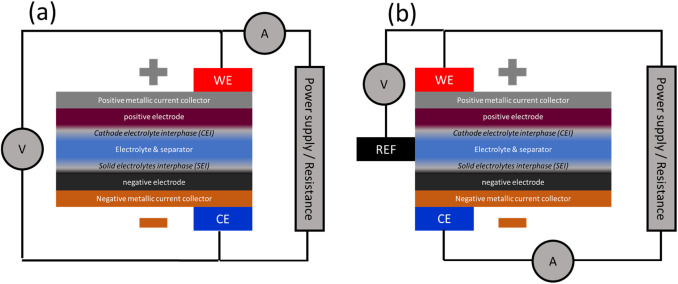Recent data from the International Energy Agency highlights a striking surge in global demand for renewable energy, with solar and wind accounting for nearly 70% of new power generation in 2022.
This dramatic shift necessitates advanced energy storage systems capable of managing intermittent power sources. Enter lithium-ion batteries, which have become indispensable to the renewable energy narrative—yet their optimization hinges on complex electrochemical analyses, notably impedance spectroscopy.
A prevailing issue centers around the precision of data interpretation in impedance spectroscopy applied to lithium batteries. According to a recent article in Energy Storage Materials, traditional measurement practices exhibit a considerable variance in reproducibility, impacting performance metrics. With global lithium battery market size projected to leap to $87 billion by 2027, according to Allied Market Research, inconsistencies represent a financial risk for stakeholders pushing innovations forward.
An interesting twist arises in the application of impedance spectroscopy, a technique traditionally lauded for its diagnostic precision. Experts now propose a re-evaluation of standard procedures to mitigate discrepancies noted across different laboratories. A collaborative study spanning five international research facilities revealed that consistent experimental parameters are vital for reliable data. This multi-layered analytical approach underscores the stakes—ensuring the integrity of performance assessments can lead to resource reductions exceeding 15%, potentially translating to millions in savings annually.
Narrative Architecture
Building on these insights, the complexities of impedance spectroscopy unfold. At its core, the technique employs an alternating current signal across a prescribed frequency range to probe battery materials’ electrochemical properties. However, the method’s efficacy is contingent upon strict adherence to procedural norms; variability in experimental conditions—temperature, electrode morphology, and electrolyte composition—often leads to data disparity. This emergent pattern necessitates a review of standardized protocols.
In a bid to sustain momentum in the field, experts recommend a harmonized practice supporting both data consistency and material innovation. The European Institute for Energy Research has initiated a project aimed at creating consolidated guidelines, proposing rigorous inter-laboratory proficiency testing as an initial measure. By bolstering methodological uniformity, the potential for breakthroughs in battery efficiency—quantifiable in energy density improvements of up to 10%—increases markedly.
Efforts to align theoretical models with empirical observations frequently reveal cause-effect chains that are not immediately apparent. A notable case involved a German laboratory that identified an artifact arising from ionic conduction within a novel anode material. Such findings underscore the necessity for meticulous scrutiny of localized reaction mechanisms, further complicating the interface between innovative materials and established analytical models.
The technical expertise required to navigate these challenges presupposes a foundation in electrochemistry and material science, intertwined with a critical appreciation for data integrity. However, skepticism abounds regarding claims of universal applicability of specific methodologies—driven by discrepancies found even within peer-reviewed validations.
Forward-thinking laboratories are now leveraging machine learning to predict and control impedance responses, aiming to preemptively address anomalies. The convergence of digital twins and real-time data analytics has enabled prediction accuracies that outstrip traditional methods by margins above 20% in initial trials, setting a new benchmark for predictive electrochemistry.
Stay updated on the latest in energy! Follow us on LinkedIn, Facebook, and X for real-time news and insights. Don’t miss out on exclusive interviews and webinars—subscribe to our YouTube channel today! Join our community and be part of the conversation shaping the future of energy.





